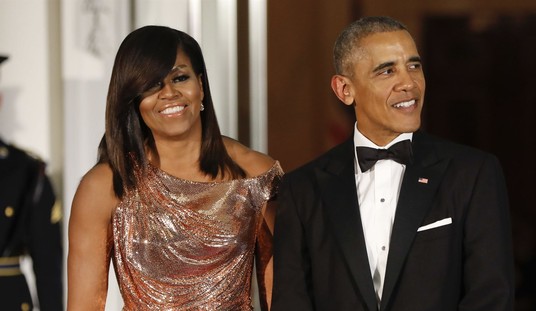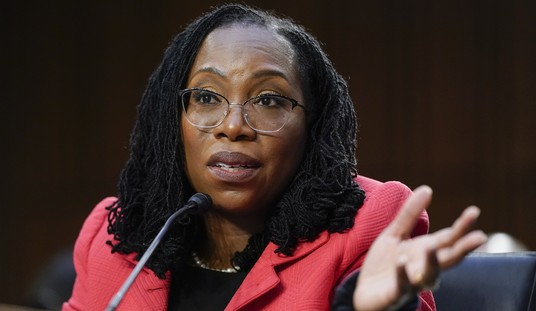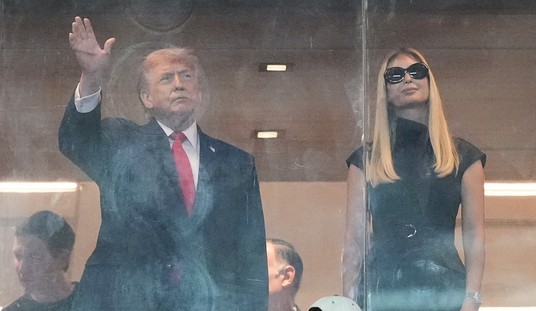A few days ago, Jay Rosen of New York University and the inestimable Pressthink weblog asked me the following question, in the context of a rather heated back-and-forth between mostly-conservative bloggers and representatives of the mainstream media, or MSM:
Is the point to have a dialogue with the MSM or cause its destruction?
Jay’s was a very fair and serious question, and it deserved a serious answer. What I’m interested in is not destruction, but rather disclosure, transparency, reform. You can boil all of the above down to one term that ought to be the watchword for everybody in all of journalism’s myriad forms: honesty. I don’t mind a biased press (more on this later), but I do mind a dishonest press.
Dishonesty, by commission and omission, was at the heart of both the Dan Rather and Eason Jordan blowups. In the now-infamous 60 Minutes II case, Rather broadcast, defended, and even now continues to defend flat-out dishonest journalism: his evidence was prima facia bogus, his on-air “experts” were nothing of the sort, dissenting experts were ignored as CBS News shopped around for one who would give them the answer they wanted, and instead of admitting to (at the very least) having been had, Rather went on the attack, accusing his critics of impure motives instead of reporting on valid criticisms and investigating the actual facts. And despite all of the above, a large portion of the MSM, including its self-styled watchdog, the Columbia Journalism Review, continues to defend Rather and his discredited report.
Jordan’ s case, while not as cut-and-dried as Rather’s, is in the big picture far more disturbing. Jordan has been described as CNN’s ‘ambassador’ to the world, but his tenure in that post is hardly a paen to honest journalism. Jordan, and CNN under his leadership, has a long history of looking the other way when legitimate stories could have interfered with the network’s access to areas controlled by dictatorial regimes. Everyone is familiar with Jordan’s mea culpa after the fall of Baghdad , but Saddam Hussein was hardly the only monster he chose to appease. Jordan spoke almost lovingly of Fidel Castro in this 1999 speech, celebrating the opening of CNN’s laughable Havana bureau, which has gone on to contribute little more than English translations of Cuban propaganda. Even worse, in Jordan’s words, “[D]uring the discussions Castro suggested that CNN be made available to the entire world. In fact it was that seed, that idea that grew into CNN International, which is now seen in every country and territory on the planet.”
Given the editorial content of CNN International, I can readily believe it was founded at Castro’s suggestion.
Jordan also pandered to the odious Kim Jong Il of North Korea in 2003, dismissing criticism of Kim’s regime by noting on the air that, “a lot of people think North Korea’s a peculiar country, in large part because they don’t understand it, they’ve never been there, they’ve never seen it first hand,” and passing along Clinton Administration officials as being “stunned by how well informed and how smart this guy is.” Even if true, one questions the relevance of that observation when applied to an individual responsible for wholesale murder and monstrous oppression. It’s fair to ask now how Jordan’s playing to North Korea for access might have affected CNN’s coverage of Kim’s abominable reign.
Jordan ‘s track record of sucking up at his own country’s expense wasn’t limited to dictators; according to observers of the now-infamous Davos conference, he was playing to the anti-American prejudices of European and Arab attendees when he offered up evidence-free tales of US war crimes. He’d previously accused American troops of abusing journalists, on foreign soil and without providing any proof, on at least one other occasion. If there were any substance to Jordan’s claims, either in Davos or in Portugal , I strongly suspect stories would have been aired on his network by now. The more I learn about Jordan ‘s past escapades, the less sympathy I have for him. His unwillingness to report on actual atrocities committed by dictators he schmoozed makes his dishonest rumor-mongering all the more disgraceful.
Getting back to the overall topic, what I’d like to see in the MSM is not an end to rancor, or controversy, or tough reporting. What’s called for instead is an end to the myth of Olympian objectivity in the press. Reporters and editors are not higher beings–they are as subject to human foibles as anybody else–including those of bias, spite, ideology, and even hatred. It’s long-past time to drop the charade and admit that fact of life.
In financial writing, reporters are required to disclose any holdings or personal interest they may have in a company that they’re writing about. Why shouldn’t the same rules apply to political reporters? Why shouldn’t Dana Milbank, Peter Jennings, and Bob Schieffer publicly state, on a reasonably regular basis, who they voted for in the last election, and who they plan to vote for in upcoming races? (And yes, I’d extend that to Brit Hume and Bill O’Reilly as well.) They would demand the same of any critic of their coverage, and absolutely demand such disclosure from corporate officials, political activists, or even in man-on-the-street interviews.
Instead of disclosure, we currently have a ridiculous ad-hoc system of elaborate obfuscation and denial. On the one hand, we have credible surveys of journalists indicating they vote for Democratic candidates far out of proportion to the rest of the electorate, as well as the very-occasional admissions that newsrooms lean heavily left on most issues, buttressed by still-more polling data. On the other, we have ridiculous displays like an editor being suspended from his job because he donated $400 to a presidential candidate, and other very prominent journalists making a show of not voting because exercising their franchise might be construed as (gasp!) possibly leading to favor for one candidate over another in their coverage.
What are you afraid of, journalists? Being honest with your readers? Yes, some might discount you for being up-front with your beliefs, and stop paying attention–but I’m here to tell you, most of them are tuning you out already. Look at the Pew surveys. If your credibility was a stock, you’d be in Enron territory by now.
More to the point, do you really think everybody else in the world is so stupid as to believe you genuinely don’t have your own opinions, or that those opinions don’t affect the job you spend most of your time doing? Do you really believe that you and your peers, alone among the masses of the Earth, are specially blessed with the ability to completely separate your verbal and written communications from your personal opinions, at all times? Especially when you’re talking about highly-charged, contentious issues and political races?
Do you really think the rest of us are that gullible? Are you that arrogant? (Obviously, the answer to the latter is “yes,” from the Steve Lovelady/Nick Coleman/Jim Boyd/Randall Becks of the world, but as the old media monopolies crumble, writers with that kind of attitude are going to find themselves with very few readers, and they’ll deserve it.)
Wouldn’t it really be more ethical, and more honest for you to just admit where you’re coming from, on a reasonably regular basis, and let your readers make up their own minds? I had nothing but respect for Mickey Kaus last year when he disclosed how he was voting, and that he’d given John Kerry a few hundred bucks, instead of pretending that he didn’t have a dog in the fight. That admission also made Kaus’s criticisms of Kerry all the more compelling–because as any sports fan will tell you, you sit up and pay attention when a hometown beat writer says something bad about his own team. He wouldn’t be doing so unless he was 100% convinced it was correct and newsworthy.
So, Jay, at long last, that’s what I’d like to see out of the MSM. I’d like to see it live up to its best ideals, and its fundamental task: go find out what’s happening and report it honestly–and that includes being honest about what you, the reporters, bring to the story.
Is that really asking so much?









Join the conversation as a VIP Member